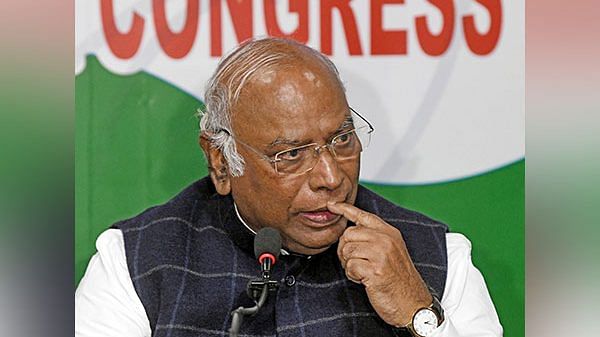The eighty-year-old Rajya Sabha MP Mallikarjun Kharge has been elected as the 98th president of the 137-year-old Congress party that remained in government for a good number of years after Independence. After losing two consecutive General Elections (2014 and 2019) and facing the prospects of being written off the political map of India, the Congress party needed a metamorphosis, not mere change of leadership. The simmering discontent among the party veterans resulted in the formation of what was popularly known as the G-23 and promised to bring about that much-needed image makeover and a grand revival to confront the BJP in 2024.
But what began with a bang appears to have been subdued with a whimper.
A collectively weak grouping: The G-23
The “first family” of the Congress was never worried about the G-23, the ginger group that represented the rebels and demanded a change in the apex leadership. This was because no one among the G-23 wanted to bell the cat, nor was any one of them ready to support the other among them. They were a collection of veterans who were individually rebellious but collectively meek. The Gandhi triumvirate knew this from day one. The best choice for them was to challenge the G-23 with an internal election which they did. So Kharge won but the Congress lost.
From an umbrella organisation during the freedom struggle, Congress turned into a political party post-Independence. The first generation of leadership that fought for freedom, democracy and politics of value faded into oblivion after the 16-year tenure of the first Prime Minister and a short term of Lal Bahadur Shastri. The ideals and commitments of the freedom struggle gave place to politics of convenience, corruption and compromise. Indira Gandhi went to the extent of defending her corrupt regime saying “corruption is a global phenomenon”.
The party’s survival and continuance in power became the primary objective of the Congress. Two things became germane to achieve these objectives: creating a pliable administrative system and keeping the party under the thumb of “Gandhi-Nehru” family. This ensured the ascendency of Rajiv Gandhi to the top position without either merit or political acumen. The trouble for the Congress started soon after the tragic assassination of Rajiv Gandhi.
It is no secret that the present apex leadership of the party has no biological relationship with (Mahatma) Gandhi and very little or no resemblance to the Congress that was once led by Jawaharlal Nehru and other such stalwarts of the freedom struggle.
The administrative and political ecosystem that emerged after Sonia Gandhi’s taking over the party ensured a fractured mandate to form government but without a member of the first family at the seat of power. First, it was P. V. Narasimha Rao and then Manmohan Singh who presided over the government under the strict supervision and control of the party ‘owned and operated’ by the family. All attempts to foist a member of the family as the Prime Minister failed or were probably thwarted.
Also read: With Kharge win, Congress has just shown us how democracy is subverted
Post-Modi Congress
In these circumstances, the 2014 election dealt a severe blow to the ‘family’ and its control over the party. The charismatic leadership of the BJP, well formulated and finely executed political strategy and above all, a corruption-free governance signalled a new beginning, bringing back memories of the early days of commitment and idealism. Years of administrative, systemic and bureaucratic cobwebs were dusted and discarded. The “chalta hai” attitude was replaced with “lead by example” where the PM, party and people were in consonance with one another.
The Narendra Modi government rewrote the rules of the political game. For the family-owned Congress, this narrative was new and impossible to comprehend, much less confront. Fissures within the party were bound to develop as many leaders not just lost election but even political relevance. Some of them took note of the straws in the wind and quickly jumped into the BJP bandwagon. But many old stalwarts demanded an explanation for the party’s debacle, disorientation and sought a major course correction. Though, initially, the family put up a stiff resistance to change, soon it realised the need to accommodate the demands for a “non-family” leadership and prudently douse the rebellion.
Two things became apparent. That the “family” can no longer officially hold the top post. And the top post has to be held by a person who will always be subservient to the family. Such a person should have no following in the party, have no support base within or outside the party and more importantly, never assert his importance or intelligence. And hence, the choice of Kharge and rejecting Tharoor.
The choices before Tharoor are immaterial and inconsequential as the first family has shown its power and Tharoor his place. It is a matter of time before the G-23 winds up. But the sad part is that the political landscape is devoid of a strong Opposition that would support the government in all its good programmes and haul it over for errors of commission and omission. The void created by the Congress will now be occupied by a motely crowd of regional outfits and charlatans masquerading as politicians. We don’t need a “Congress- mukt Bharat”, we need a “Gandhi-Nehru Parivar mukt Congress”. Seems to be a tall order.
The author is the former editor of ‘Organiser’. He tweets @seshadrichari. Views are personal.
(Edited by Anurag Chaubey)



